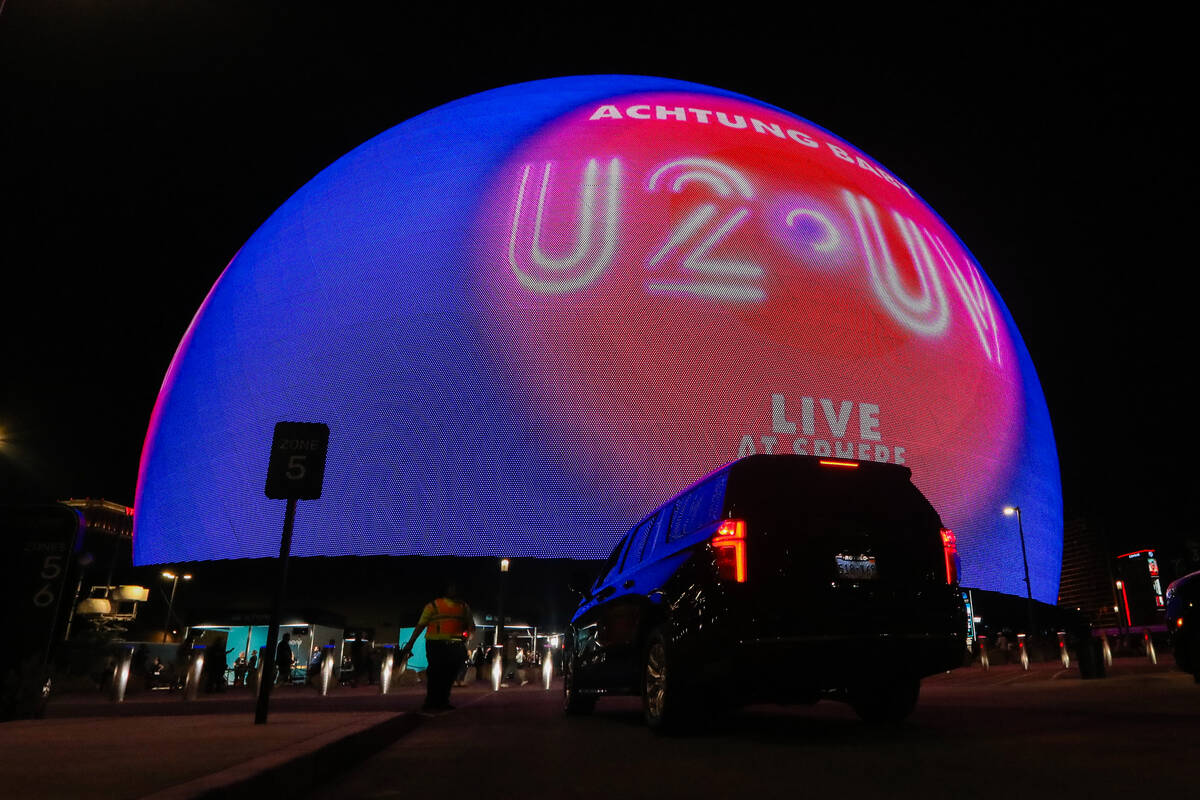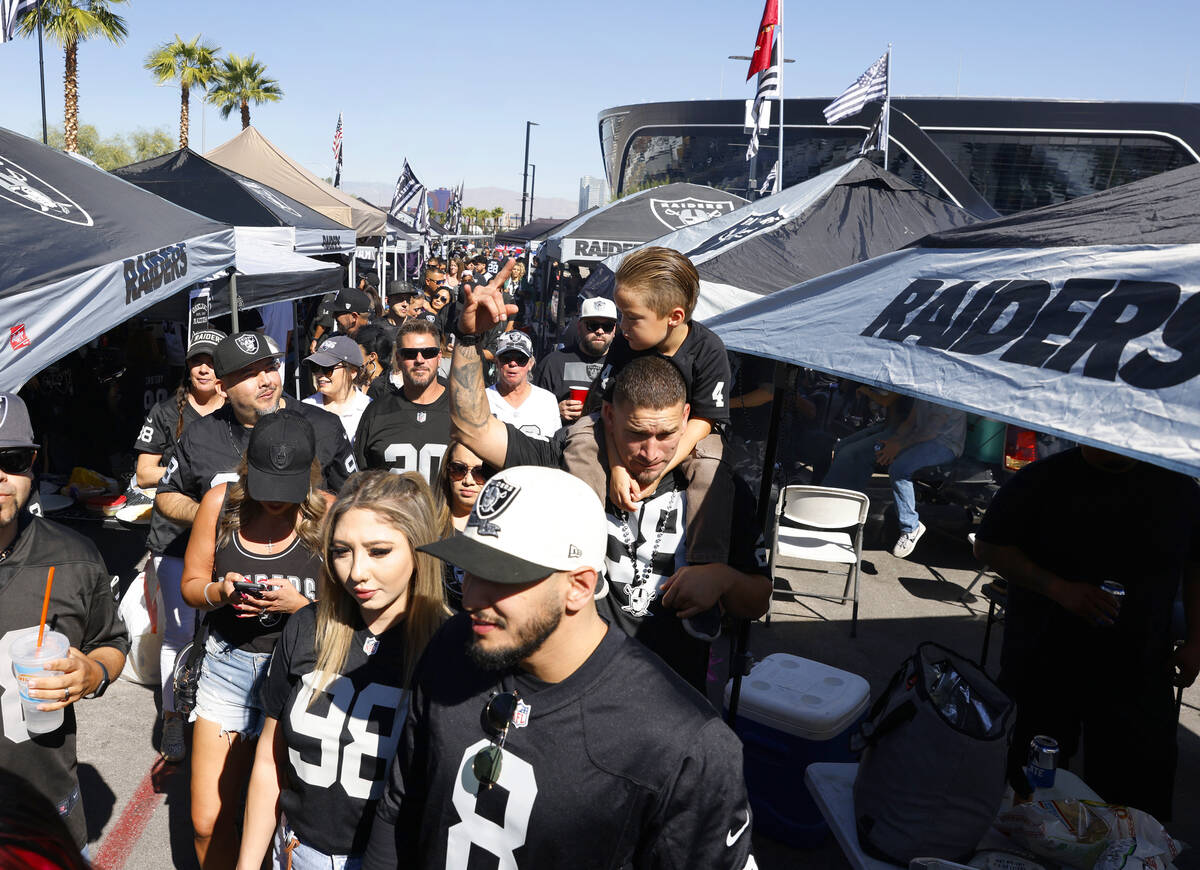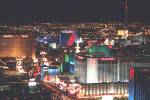Can Las Vegas win the ‘fun economy’ battle to diversify its economy?
Bo Bernhard wants people to know fun is big business now.
“When we’re talking about the fun economy, so sports, tourism and entertainment, it is nine times bigger than the global pharmaceutical industry,” said Bernhard, vice president of economic development at UNLV.
Chatting from UNLV’s Black Fire Innovation building at the Harry Reid Research and Technology Park in the southwest portion of the valley, Bernhard said Las Vegas has a chance to become a global city on the back of the “fun economy,” if it plays its cards right.
The city has added a number of high-profile ventures over the past few years including the Raiders, the NHL’s Golden Knights, the Sphere and is set to host a slew of high-profile events culminating with the 2024 Super Bowl in early February. Population estimates have the metro adding 115 residents a day, the vast majority from California.
A UNLV Economic Development report this month outlined just how big fun has become as a business. The report estimates it makes up $13.7 trillion globally, which would put it at 13.7 percent of total GDP ($100.7 trillion). This makes the submarket bigger than the clothing industry, auto manufacturing, agriculture and construction.
Global tourism has seen a massive rise since the ripples of the pandemic have died down, as the industry outpaced the global economy, and the sports economy has added $330 billion to its value in the past four years. On top of this is the ever-expanding entertainment industry, which was valued at $2.7 trillion globally last year.
Diversify and expand, but not too fast?
Las Vegas finds itself at a key crossroads in terms of capitalizing on a post-pandemic landscape where terms like “experiential retail” and “competitive socializing” are making their play for consumer dollars. However, UNLV’s annual population projection report, prepared for local governments, outlines Las Vegas ranked 50th out of 56 major metros in a Brookings Institute report when it came to overall improvements in prosperity, including changes in productivity, average wealth and income and standard of living.
“The report emphasizes that high tech, research and capital intensive-based economies grow faster than regions that rely on the hospitality and retail sectors for their economic growth,” he said.
Las Vegas has no shortage of issues it will have to deal with as its population continues to expand and its economic development sector gets shot into overdrive. There is serious concern over water usage, a shortage of affordable housing, rising costs of living and already worrisome traffic issues. A recent technology summit showcased the desire of many of California’s tech millionaires and billionaires to relocate out of their state to Nevada, however many locals fear incoming citizens may bring the very traits and values they were trying to escape in the first place.
Bernhard said Las Vegas has to pay close attention to its growth strategy as it moves forward, and has done so already in the past, and can learn from others mistakes in the process.
“How do you avoid the traps and the challenges of the cities that have done this poorly, and then mimic and model yourself after those who have done it well? One of the things growing up here that I heard a lot was that we can’t become Phoenix, and what that meant wasn’t always exactly clear. And the way (Arizona State University) has transformed their innovation economy, it’s a wonderful model, but then one of the sentiments growing up here was also to avoid that kind of suburban sprawl,” he said.
The rise of remote work, which was kicked into overdrive during the pandemic, has brought about record levels of state-to-state migration, but some cities like Austin, Texas, and Miami, once seen as affordable havens, have experienced the growing pains of an influx of residents and economic development.
Marta Soligo, director of tourism research at UNLV’s Office of Economic Development and a visiting professor with the William F. Harrah College of Hospitality, said Las Vegas does incur regular comparisons to Miami, and for Las Vegas to obtain sustainable economic growth via industries such as tourism, it needs to make sure it involves the locals in all discussions.
She pointed to the upcoming Formula One Las Vegas Grand Prix as a “big test” for the city, as while the event will drive millions of dollars of economic development, ticket prices mean most locals can’t afford to attend and may have to deal with horrendous traffic delays all weekend.
“That will be a big step and what is fundamental is for stakeholders to listen to the community, and take their voices into consideration,” she said. “If you’re noticing a lot of complaints from the locals, it is important to take that into account so the event can improve year after year, because when it comes to tourism there are two subjects, the guests and the host, and both are just as important as the other.”
Bernhard agrees, Las Vegas needs to learn on the fly, and also from the past when it gaming sector was brought to its knees during the pandemic. He said Las Vegas needs to build off its existing “fun economy” infrastructure like sports teams, entertainment venues and stadiums, and keep expanding as well as updating the gaming sector as tourist demographics change and trend younger.
He said failed economic ventures such as the bid to make Las Vegas an electric vehicle hub with Faraday Future, which came crashing down, are key reminders that missteps in terms of economic development can be costly ventures.
“Economic diversification is not just planting a seed out in the desert and hope that it grows. Each degree kind of diversifies from the existing economic strengths. And as a result you have a much better shot that say some of kind of random, ‘Well we’re going to try and be the world’s greatest whatever.’”

































